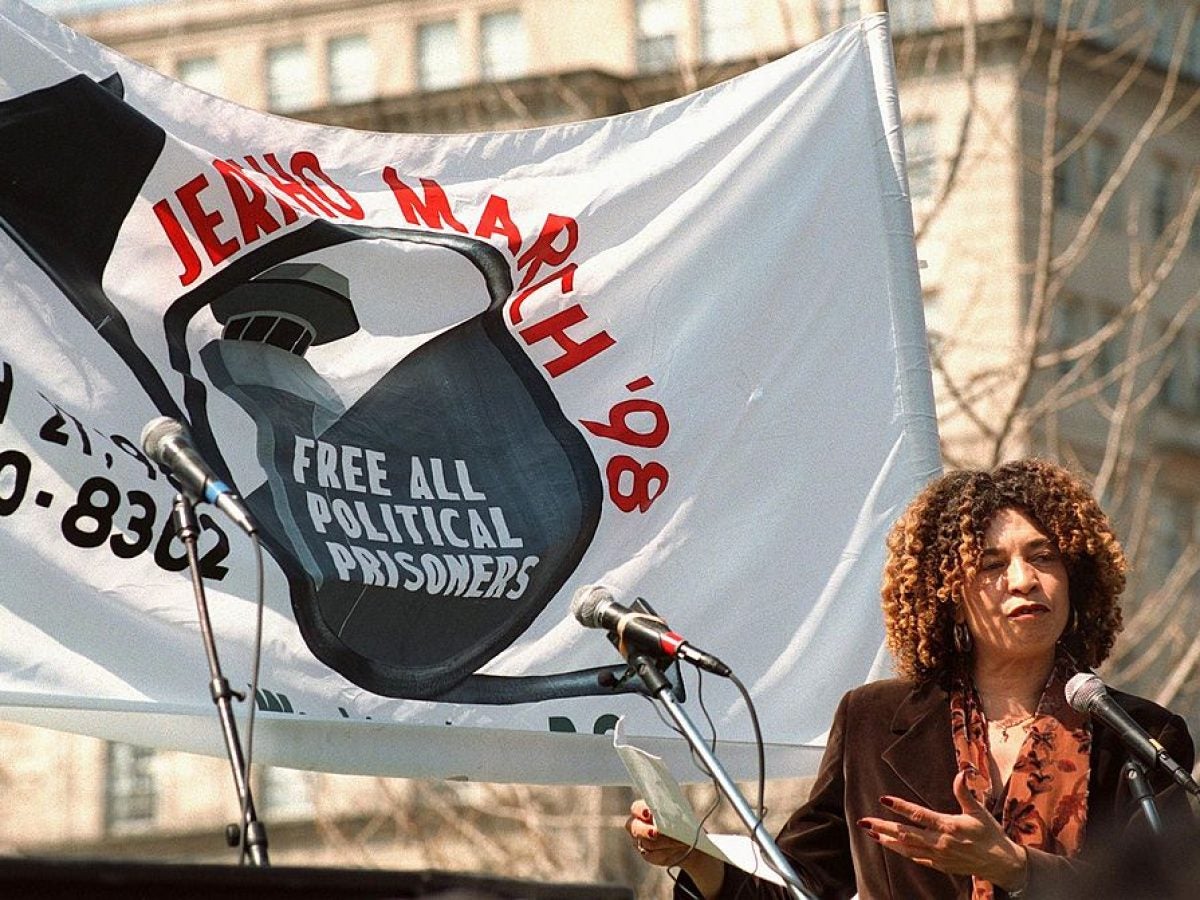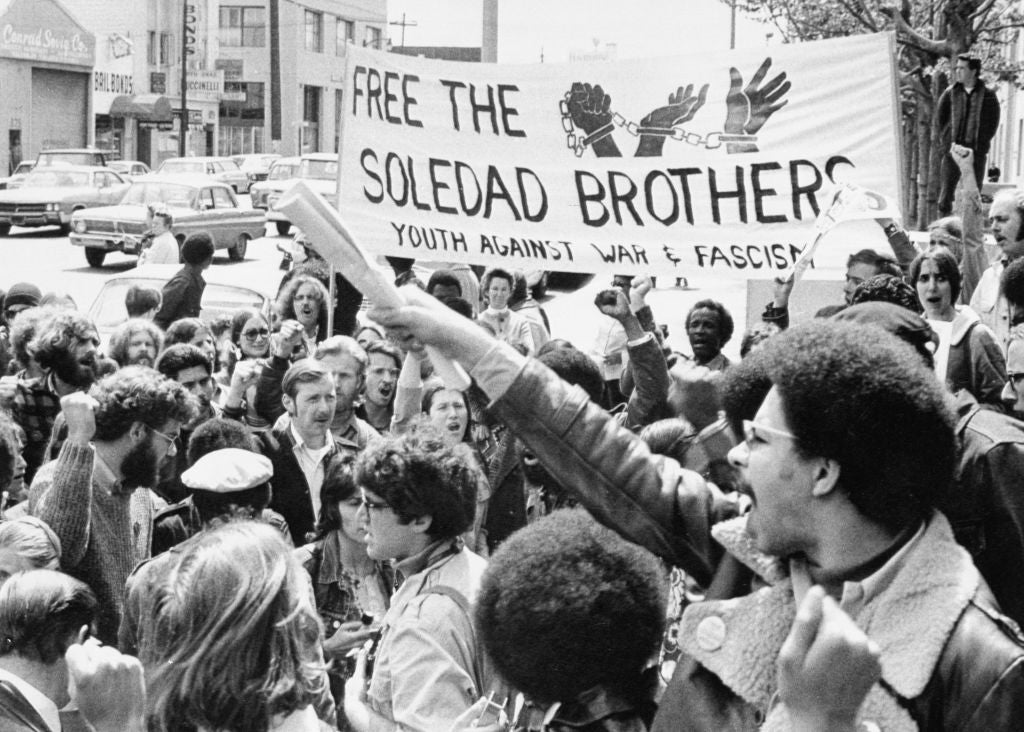
Black August is a commemoration of the countless Black freedom fighters and radical organizers who have been persecuted, imprisoned and killed by the state. It is a month dedicated to educating communities about the oppressive conditions of American prisons; to calling for the release of all political prisoners in the United States; and to honoring the history and legacy of Black power building and resistance.
Black August officially began in California’s San Quentin State Prison in 1979 to honor the lives and deaths of several Black revolutionaries, including George Jackson, an author, abolitionist and Black Panther member who was assassinated by prison guards on Aug. 21, 1971. From the age of 18, Jackson spent 11 years (the rest of his life) behind bars, with seven and a half of those years in solitary confinement.
To show solidarity and pay tribute to Jackson and other Black political prisoners, a group of incarcerated organizers, known as the Black Guerilla Family, came together to continue their revolutionary work. They studied Black radical texts, fasted from sunrise to sunset, abstained from drug and alcohol usage and engaged in daily exercises to sharpen their bodies, spirits and minds. Traditionally, Black August is not a month of celebration, but rather a 31-day period of commemoration, reflection, education and self-discipline.
“It must be clear that the purpose of Black August as created by the founders was not to celebrate, but to observe by individual and collective fasting, studying, educating and community work, as well as political and cultural edutainment,” Mama Ayanna Mashama, cofounder of the Black August Organizing Committee and Oakland chapter of the Malcolm X Grassroots Movement, wrote in an essay about the month-long practice.
When we look to the past to study the revolutionary work of our ancestors, we’re able to draw inspiration and strength to boldly reimagine new methods of community building and radical resistance.
“Black August is a time to engage in self-reaffirming action to advance our struggle for self-determination and national liberation,” Mashama shared, “and to commemorate actions of resistance, revolution and rebellion while promoting an understanding and awareness of active and proactive acts of resistance.”
Historically, August has carried the weight of the struggle for Black liberation more than any other month.
Many important moments of Black resistance against state-sanctioned violence and systemic racism have taken place during August, such as the start of the Haitian Revolution in 1791, Nat Turner’s Rebellion in 1831, the 1850 Fugitive Slave Law Convention, the March on Washington in 1963 and the 2014 Ferguson Uprising. Several notable Black leaders and activists were born in August, including Fred Hampton, Marsha P. Johnson, Marcus Garvey, Anna Julia Cooper and Russell Maroon Shoatz. Many have also passed away during this month, including W.E.B. Du Bois, Huey P. Newton and Martin Sostre.

Forty-four years since the first Black August tradition, incarcerated people continue to embody George Jackson’s activism and abolitionist spirit. On Aug. 21, 2018, exactly 47 years after Jackson’s death, imprisoned radicals across the country began a nationwide strike to challenge inhumane living conditions, demand an end to exploitative labor practices and get incarcerated people the right to vote.
Just two years prior on Sep. 9, 2016, the 45th anniversary of the Attica Uprising, another national protest occurred. More than 24,000 people in 24 states participated, making it the largest prison strike in U.S. history.
From the streets of Minneapolis and Washington, D.C. to the prisons in Alabama and Texas, Black August remains more important than ever. This year’s tradition feels especially paramount, as we are witnessing the ongoing conservative-led movement to ban books by Black writers and scholars, prohibit DEI programs and initiatives and censor Black history and culture in schools—all while Black Americans are still fighting for reparations, still being incarcerated at nearly five times the rate of white people and still facing unequal pay in the workplace, among many other issues.
Black August is an invitation to reflect on the struggle for Black liberation, pay tribute to Black revolutionaries and come together to learn, grow and build as a community. It is a time to remember named and unnamed Black freedom fighters, political prisoners and grassroots organizers and protestors who have been lost to state-sanctioned violence and forgotten behind prison walls, as well as an opportunity to share their stories, uplift their voices and learn from their knowledge and sacrifice.
When we look to the past to study the revolutionary work of our ancestors, we’re able to draw inspiration and strength to boldly reimagine new methods of community building and radical resistance.
Black August is an important reminder that through pain, grief and rage, Black folks persevere and carve new paths toward collective peace and freedom.
Even in the face of white supremacy and systemic anti-Black racism, we continue to fight for a new world. Black August is an important reminder that through pain, grief and rage, Black folks persevere and carve new paths toward collective peace and freedom.
In the words of Black revolutionary Assata Shakur: “It is our duty to fight for our freedom. It is our duty to win. We must love each other and support each other. We have nothing to lose but our chains.”